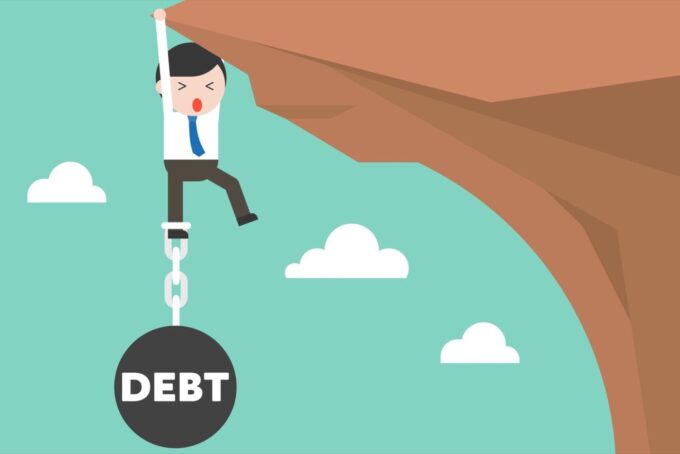Perhaps you’re earning too little to maintain your standard of living or are stuck in a vicious cycle of debt, or you want to jump-start on saving for a major financial goal like buying a home or investment. You may need help with tracking your objectives and improving your financial life.
If you’re looking for ways to simplify your financial life, save more, and increase your wealth, then you’re in the right place. In this guide, you’ll learn simple and practical ways to turn your financial situation around. Depending on your financial situation, it may need some time to get back on track, but don’t be discouraged if you keep at it. You can improve your position in no time.
1. Read books and articles on personal finance

If you need some valuable help with your finances, but are still unsure where to start, seek financial assistance from books and articles written by experts. Different books can help you control your finances, get out of debt, and build your investment. Books or articles on personal finance offer a great way to change your approach to managing money.
To further boost your savings, buy used financial books online, read blogs and articles like this one, or consider audiobooks if you prefer hearing the advice.
2. Reduce your monthly bills

One of the easiest things you can do to simplify your financial life is to cut your monthly expenditure. While it may be impossible to reduce certain fixed expenses like car payments or rent without drastically changing your lifestyle, you can mitigate variable costs such as subscriptions, clothing, or entertainment, and buy what you need and not what you want.
Trying to cut out bills that may reduce your monthly expenditure can help you start putting money into your long-term investments. Some companies may not want to lose you as their customer to their competitors. They may be willing to get your monthly bill down to a more reasonable amount, so consider negotiating your bills.
Another way to also reduce your bills is by conserving your utilities. Making simple efforts, like turning off the lights when you walk out of a room and switching off your electric appliances when they aren’t in use, can help you save a substantial amount of cash when it comes to your monthly utility bills. You can do a few extra things each day in your home to reduce your monthly bills.
- Open your windows to let in natural light during the day to avoid using electricity for lighting.
- When you’re cooking, ensure that you use a pot that’s the same size as your burner. If you use a smaller pot on a large burner, you expend energy for the same results. Also, use the smallest pot or pan when reheating small quantities of food to avoid preheating your entire oven and wasting even more energy.
- Wash your laundry in cold water. You’ll gain the same results you would if you washed in warm water, but you’ll save a few dollars per load of laundry. You can also hang your laundry outside in the summertime and let it dry in the sun, rather than using the dryer in the washing machine. This may save you some extra dollars when paying your monthly electricity bill.
- When you’re out of your house, you can turn off the water heater. It only takes an hour for water in your heater to reheat, and turning it off saves some energy.
- Cancel expensive cable subscriptions and look for low-cost streaming alternatives.
3. Pay off your debt

One of the most expensive burdens you can have is carrying a lot of debt, especially if it’s high interest-paying credit card debt. Debt isn’t always a terrible thing. With debt, you can buy a home while you’re young enough to enjoy it, and a vehicle, when purchased in cash, may prevent you from owning one in years. Certain debt is welcome, but most debt can also be a heavy burden for most people.
Almost half of Americans are carrying credit card debt. It’s terrible because it’s usually not for those significant investments like a car or a home, but for things they can often live without. If you want to upgrade your financial situation and gain more opportunities, pay off your debt as quickly as possible.
According to snappypaydayloans.com, start by listing all your current debts, be it quick paycheck advances, credit card debt, car loan, or student loans, and figure out the minimum amount you owe to remain current with each debt. Simply paying the minimum amount doesn’t get you out of debt quickly, but evaluate your expenditure and determine how much of your discretionary spending you can allocate toward your debt repayment.
You can also reduce the interest rate on the debts by asking your issuer for a lower rate or consolidating your multiple debts into one. You can also transfer your high-interest debt to a low-interest credit card, such as a balance transfer card. Then, set up your debt repayment plan and start spending wisely to pay off the debts as quickly as you can.
4. Start saving each week

Like investing, saving is also another passive approach to increasing your wealth gradually. To gain control of your finances, you can open direct money into an interest-bearing savings account. It could be every week, month, or a certain time of the year.
The money you’re putting up as savings could be the money you save from your grocery budget each month, a certain amount you put aside from each paycheck, or a tax refund. No matter which option you choose and how little you save, look for ways to increase your savings. Small gains will amount to big returns over the long run.
Ensure that you review your finances regularly and stay on top of your income, while reducing your spending, if you want to simplify your financial life. If you save more and live below your means, you can grow your wealth over time. It’s up to you how aggressive you are in making your money work for you.









